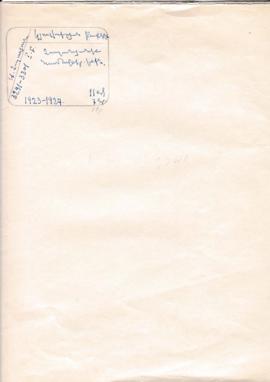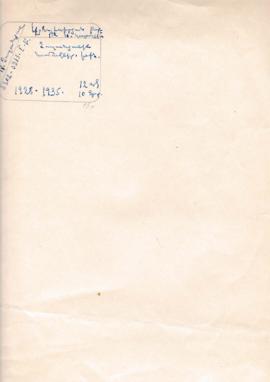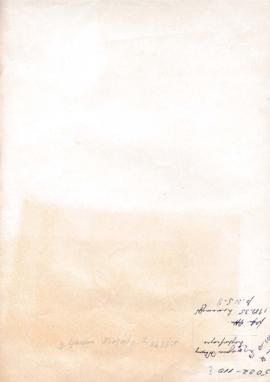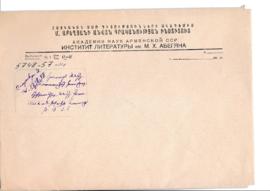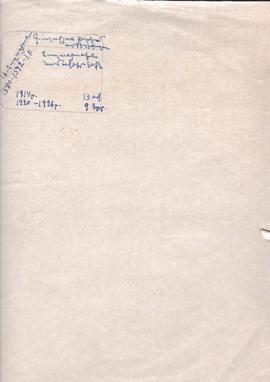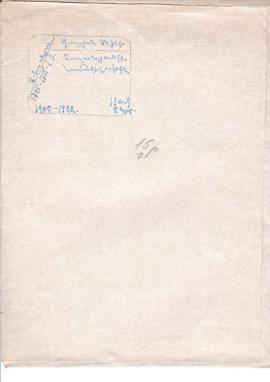- AM-GAT/133/List5/Part1/Docs3260-3275
- Item
- 1900-01-01-1914-12-31
Babken Kyuleseryan on his philological activities, the attacks on Chopanyan, the suspension of “Anahit” journal, his university education, his national-cultural activities, the Armenian Question, Poghos Nubar Pasha, the Armenian political situation, Armenian-French relations, war and related issues, Armenian volunteers, his visit to America, his health condition, personal and other issues.



